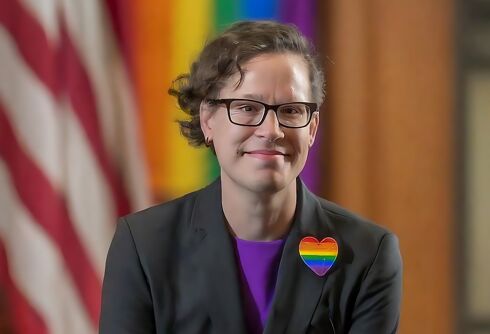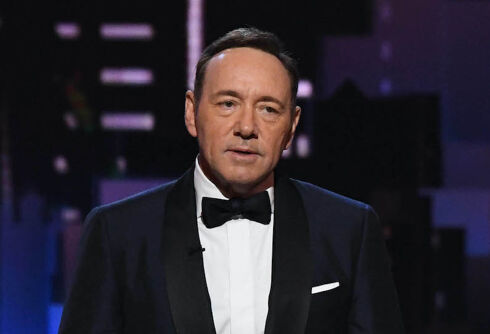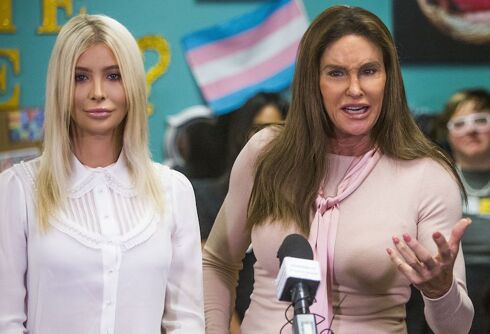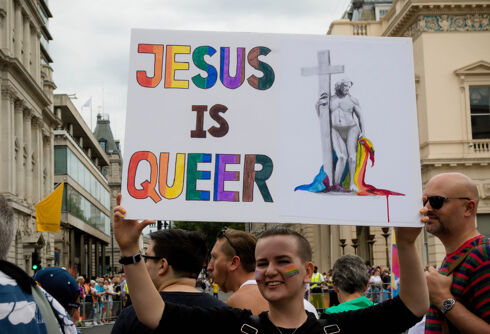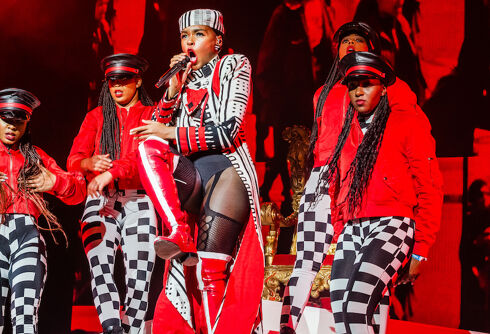LONDON — The Olympic leadership is “cross” with Russia for implementing anti-gay legislation ahead of the Winter Games, a senior IOC official said Monday, insisting that there must be no restrictions on athletes in Sochi next year.
The law, which provoked an international outcry and calls for a boycott of the Olympics, bans “propaganda of nontraditional sexual relations” and imposes fines on those holding gay pride rallies.

Activists participate at a protest against Russia’s new law on gays, in central London, Saturday, Aug. 10, 2013. Hundreds of protesters called for the Winter 2014 Olympic Games to be taken away from Sochi, Russia, because of Russia’s new anti-gay law.
The IOC asked the Russians last week to provide written re-assurances about how the law will be applied.
And C.K. Wu, an IOC executive board member, said the Russians must “fully understand” that the human rights of athletes, as enshrined in the Olympic charter, have to be respected during the Feb. 7-23 Olympics in the Black Sea resort.
Never Miss a Beat
Subscribe to our newsletter to stay ahead of the latest LGBTQ+ political news and insights.
“We want to know during the games what will happen in different situations,” Wu told reporters in London. “‘What are you (Russia) going to do?’ So we are waiting for them to rea lly respond.”
Asked if the games could be taken away from Sochi if the Russian response does not satisfy the IOC, the Taiwanese official said: “The Russian authorities, they know how serious … the IOC (is). We are not joking.”
Russian Sports Minister Vitaly Mutko insisted last week that his government would not back down under political pressure, saying Sochi competitors must respect the laws.
“We have to make the Russians fully understand – even the whole world understand – in the Olympic charter it says very clearly sports is a human right,” Wu said. “This is applied to all … our message is cross – very clear.”
“We are serious. So I believe through this next 3-4 months it will be achieved and agreed what the best operation will be in the games.”
But on Monday, Russia’s Interior Ministry, which controls the police force, said the anti-gay law will be enforced during the Olympics.
As he campaigns to succeed IOC President Jacques Rogge in September, Wu said the Olympic movement would be far tougher on the human rights record of bidding cities if he was elected.
“We will make it very clear from the very beginning if they don’t follow (the Olympic charter) we have to remove the games to other cities,” Wu said. “This should become a basic qualification if you want to apply to host the games.”
The amateur boxing association chief is running for the IOC leadership against Thomas Bach of Germany, Richard Carrion of Puerto Rico, Sergei Bubka of Ukraine, Denis Oswald of Switzerland and Ng Ser Miang of Singapore.
This material may not be published, broadcast, rewritten, or redistributed.





